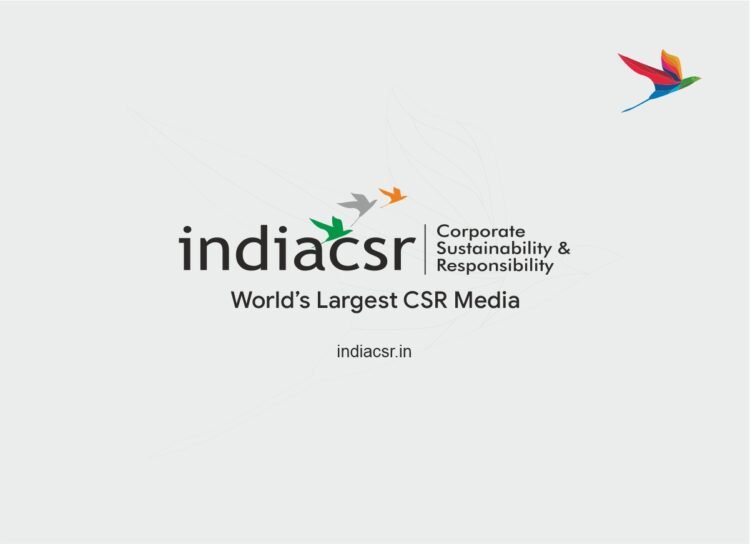India CSR News Network
NEW DELHI: The University of Petroleum and Energy Studies (UPES) located in Dehradun, is helping many women in villages located near the campus become economically independent with a unique Women Technology Park. The University has started Rural Women Technology Park (RWTP) in an attempt to help the local and rural women from the surrounding regions to become economically independent. The Rural Women Technology Park (RWTP) project has three components: Information and Communication Technology (ICT) assisted arts and craft design, Recycling of waste paper and Identification and cultivation of medicinal and aromatic plants.
Utpal Ghosh, CEO & President, The University of Petroleum and Energy Studies (UPES) shared with India CSR Network how UPES is adding value to the life of women. Edited excerpts:
What is UPES role in supporting Rural Women Technology Park programme?
To empower women in the villages by helping them to become economically independent, University of Petroleum and Energy Studies conducts various skill-development training programs. It is well recognized that financial independence achieved through income generation by women is the surest way of enhancing their status at home and in the community. For this purpose, the University of Petroleum And Energy Studies (UPES), Dehradun, has started a Women Technology Park in an attempt to help the local and rural women from the surrounding regions to become economically independent. The university received a grant for the project from the Science for Equity Empowerment and Development (SEED) division, Department of Science and Technology, Government of India, and launched the park in May 2015.
How do you identify beneficiaries for this programme and what has been the reach so far?
The beneficiaries for this project are identified from villages in Dehradun district that are located within 20 km area of the university campus. These include Bidholi, Bishenpur, Upper Kandoli, Poundha, Dunga, and Bakarna, where the team conducts surveys to understand the needs of different families and people.
Tell us about the project components. How many trainers are involved in training these women?
The project comprises of three components, such as Information and Communication Technology (ICT) assisted arts and craft design, Recycling of waste paper and Identification and cultivation of medicinal and aromatic plants.
There are many rural women near Dehradun who are involved in arts and craft activities in an unstructured way. The UPES team has set up a computer laboratory for these women inside the campus, where they are leaning about the basics of computers and how to use design software. With the help of this training, they are designing products that are different from the mundane designs already available in the market. After designing, they work under the guidance of skilled bamboo artisans in that area, who help in improving their designs and make them suitable for today’s markets. The park also has an arts and craft studio for the artisans and women to work together.
The team has installed seven paper recycling machines inside the campus to make pencils out of the waste paper. The UPES team has also formed and is training a women self-help group for using these machines to make products like cardboards, pen holders, marriage cards etc.
The team has selected 10 villages that have several marginal farmers who own small land areas. The UPES team has introduced the concept of cultivating medicinal and aromatic plants like Lemon Grass, Aloe Vera, Tulsi, etc. They provide training to the farmers with the help of experts from different organizations for the cultivation of these crops. Farmers also receive organic fertilisers, seeds, scientific guidance, market linkages, farming equipment, etc. These crops are profitable and are helping them earn more. They have already cultivated camomile plants on 20 bhiga land since September last year and are planning to cultivate Tulsi and Stevia this season.
Tell us about the product and crafts created by women under these programme. What has been response for the end products?
The women are trained under various craft making projects where they make products like cardboards, pen holders, marriage cards etc. Recently, Rural Women Technology Park (RWTP) Team has successfully completed and delivered an order of 500 Gift Hampers to Department of Science & Technology (DST), which was later handed over to Hon’ble Members of Parliament at Science Exhibition event held at New Delhi recently. The gift hamper comprised of Natural Jute Fibre Bag and pouch with 6 (woodless) Pencils made up of waste newspaper. The products were designed and created by, rural women beneficiaries of RWTP, under the supervision of WTP team
How do keep a track of the initiative’s development and growth?
We have full-time Junior Research Fellows (JRFs) and Self-Help Groups (SHGs) helping us in this project. They visit villages and talk to participants on a regular basis to gather data on how various initiatives are progressing.
You may also like:
- Children getting education in the schools make me passionate about CSR, Says Sandra Shroff, Vice Chairperson, UPL Limited
- Thomson Reuters’ CSR initiatives aligned with sustainable development goals, says Yogen Karumbaya
- Vishwaraj Infrastructure implementing path-breaking project of 24×7 water supply for Nagpur: Arun Lakhani, CMD
- It is Essential to Make Society Aware of Immense Talent That Specially-abled Individuals Have: Dr Radhike Khanna
- I Will Contribute Towards the Society in Whatever Capacity I Can: Sanjay Dalmia, Chairman, Dalmia Group







